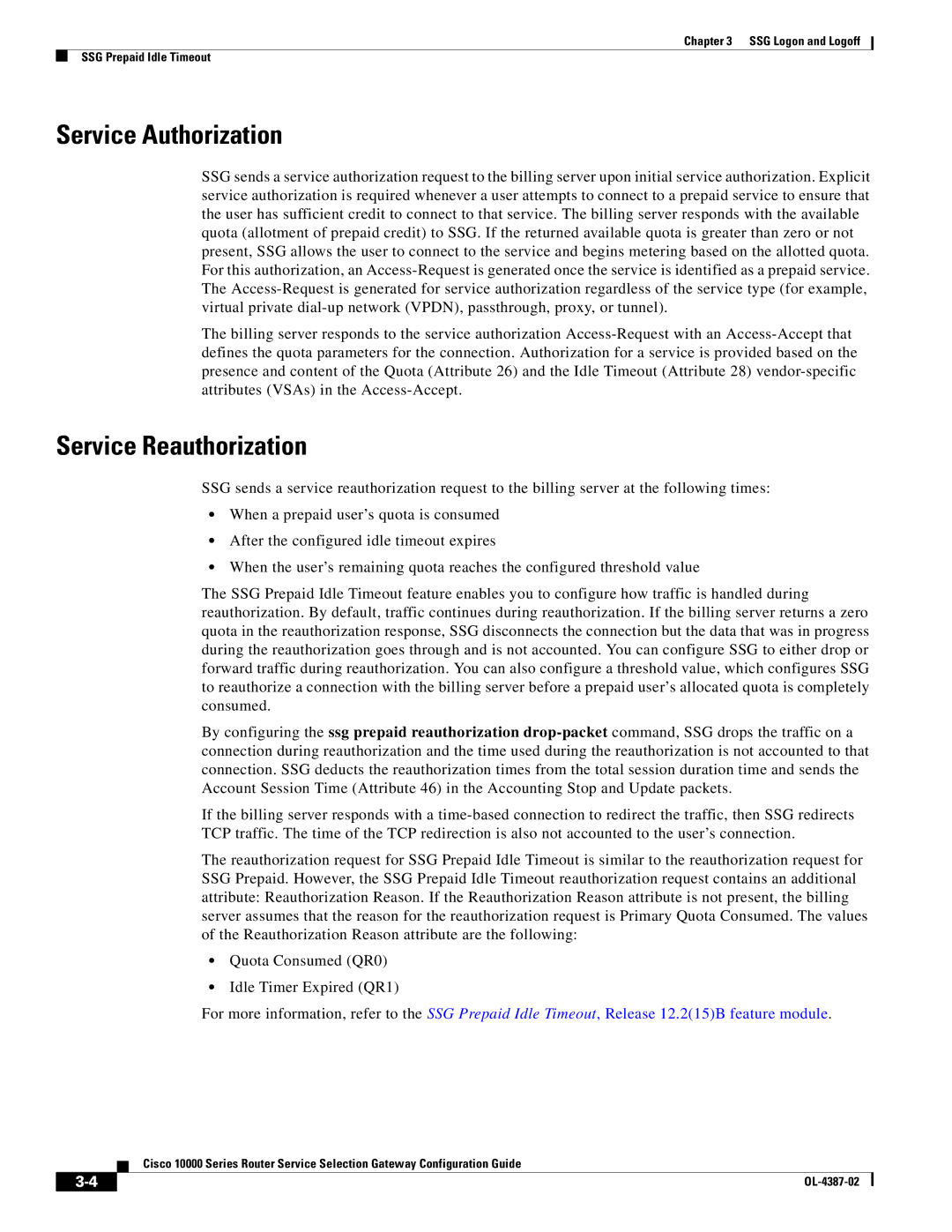
Chapter 3 SSG Logon and Logoff
SSG Prepaid Idle Timeout
Service Authorization
SSG sends a service authorization request to the billing server upon initial service authorization. Explicit service authorization is required whenever a user attempts to connect to a prepaid service to ensure that the user has sufficient credit to connect to that service. The billing server responds with the available quota (allotment of prepaid credit) to SSG. If the returned available quota is greater than zero or not present, SSG allows the user to connect to the service and begins metering based on the allotted quota. For this authorization, an
The billing server responds to the service authorization
Service Reauthorization
SSG sends a service reauthorization request to the billing server at the following times:
•When a prepaid user’s quota is consumed
•After the configured idle timeout expires
•When the user’s remaining quota reaches the configured threshold value
The SSG Prepaid Idle Timeout feature enables you to configure how traffic is handled during reauthorization. By default, traffic continues during reauthorization. If the billing server returns a zero quota in the reauthorization response, SSG disconnects the connection but the data that was in progress during the reauthorization goes through and is not accounted. You can configure SSG to either drop or forward traffic during reauthorization. You can also configure a threshold value, which configures SSG to reauthorize a connection with the billing server before a prepaid user’s allocated quota is completely consumed.
By configuring the ssg prepaid reauthorization
If the billing server responds with a
The reauthorization request for SSG Prepaid Idle Timeout is similar to the reauthorization request for SSG Prepaid. However, the SSG Prepaid Idle Timeout reauthorization request contains an additional attribute: Reauthorization Reason. If the Reauthorization Reason attribute is not present, the billing server assumes that the reason for the reauthorization request is Primary Quota Consumed. The values of the Reauthorization Reason attribute are the following:
•Quota Consumed (QR0)
•Idle Timer Expired (QR1)
For more information, refer to the SSG Prepaid Idle Timeout, Release 12.2(15)B feature module.
Cisco 10000 Series Router Service Selection Gateway Configuration Guide
|
| |
|
